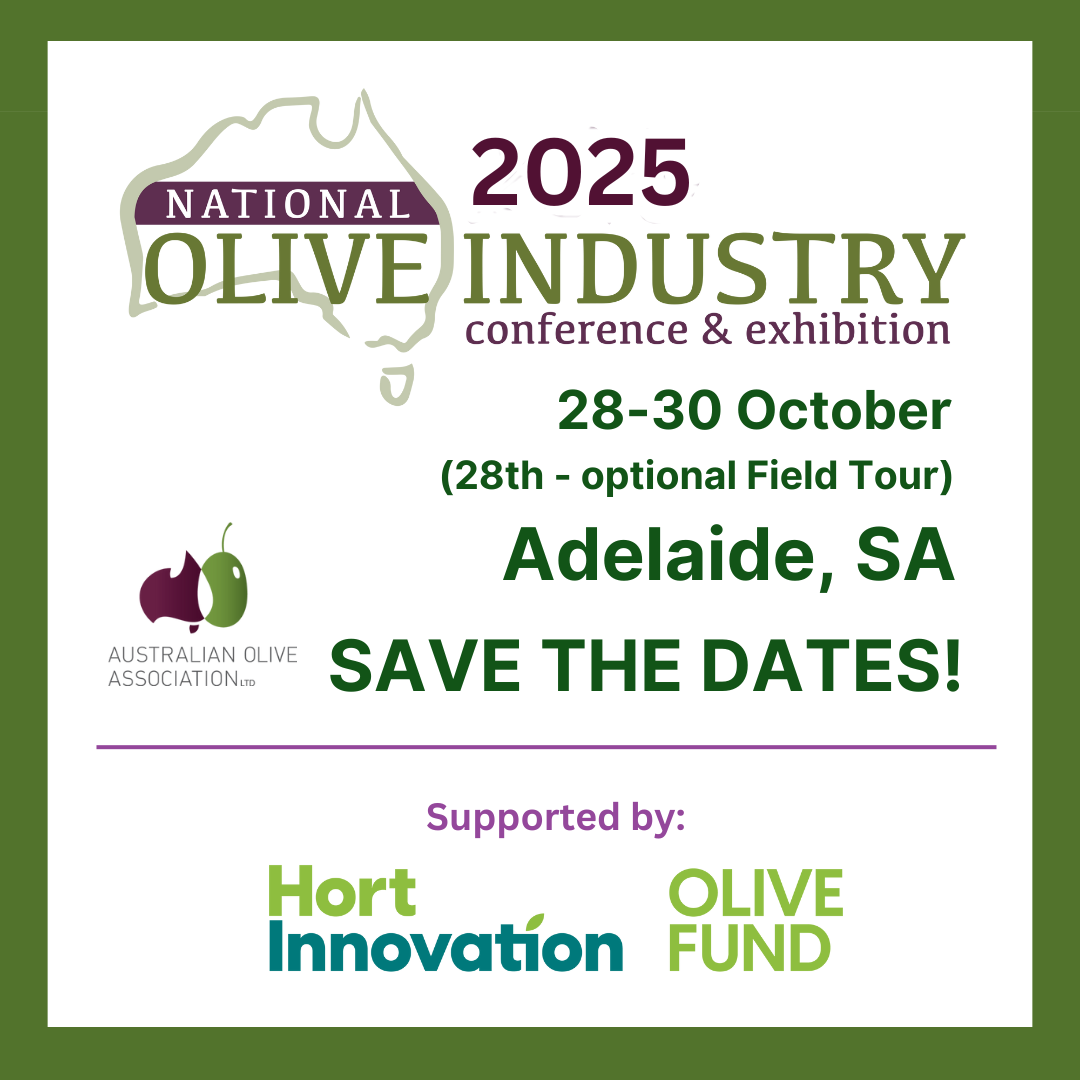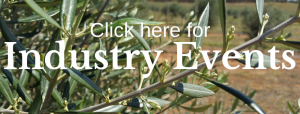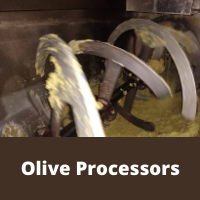Stephanie Keoghan
Olives SA hosted a free workshop surrounding the new Industry Code of Practice (COP) at Waite Campus last month, attended by more than 30 growers and producers.
The workshop, run by Lisa Rowntree, president of Olives SA, addressed the importance of the new COP to the Australian olive industry, and acted as an information session for those wanting to sign up to comply with the code.
Australian Olive Association industry development officer, John Forrest, who spoke at the workshop, explained what exactly the COP was, and why it is so important to the industry.
Pre-requisites include the product being purely Australian, and of high quality, and “signatories to the code agree to have their products undergo organoleptic (taste) and chemical testing,” said Forrest.
“These tests guarantee the authenticity and quality of Australian products and distinguish them from imported and/or poor quality products,” he said. “Essentially, producers who comply with the code provide the consumer with certainty that the product they’re buying is in fact what it says it is.”
The workshop generally gave rise to positive feedback from the industry, with four people signing up on the day, and the rest expecting to sign up further down the track.
“Producers and other industry representatives are very keen for the code to be undertaken because it means the industry will be surveyable,” Forrest said.
Forrest also mentioned some issues were raised at the workshop about the protocols for testing, and the costs for compliance with the code. Some suggested the code didn’t go quite far enough. The checklist includes becoming a member of the Australian Olive Association, production and marketing processes are undertaken to avoid or minimise adverse impacts on the environment, and having a food safety program consistent with HACCP (Hazard Analysis and Critical Control Points) principles.
Michael Johnston, treasurer for Olives SA, agreed that feedback from the workshop was mostly positive. “The workshop generated very little negativity at all with regards to acceptance of the proposals set down at the time for the Code, and it stimulated many interesting questions and answers from both sides of the board, so to speak,” Johnston said.
“At this stage, the COP will go through a self-developing process. The foundations have been laid down to make room for further development for the future of the industry,” he said.
Those who do comply with the code will display the Australian Extra Virgin brand symbol, indicating the certification of their product with the COP. This symbol will allow consumers to differentiate between high quality Australian products and others.



